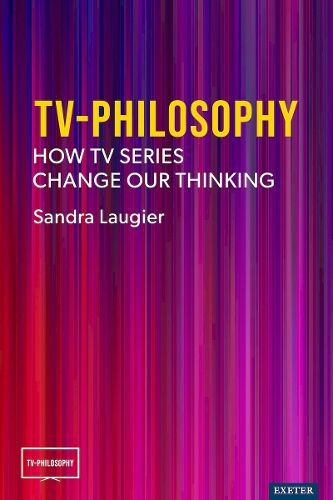Readings Newsletter
Become a Readings Member to make your shopping experience even easier.
Sign in or sign up for free!
You’re not far away from qualifying for FREE standard shipping within Australia
You’ve qualified for FREE standard shipping within Australia
The cart is loading…






This is the first book to explore the hold of TV series on our lives from a philosophical and ethical perspective. Sandra Laugier argues that this vital and ubiquitous expression of popular culture throughout the world is transformative in its effects on the activity of philosophy in everyday life. Drawing on Stanley Cavell's work on film and ordinary experience, Laugier contends that we are deeply affected by the formative role played by the TV series we watch, and by the ways they become interconnected with our daily lives.
The philosophical thinking embodied in series empowers individuals in their capacity to experience, understand and appropriate elements of the world, and to educate themselves. Through our relationships with TV series, we develop our own tastes and competences, which are constitutive of our distinct experience of life. 'Series-philosophy' is thus a democratizing force. It also offers us a new ethics, for morality can be found not in general rules and abstract principles but in the narrative texture of characters in everyday situations facing particular ethical problems, and with whom we form attachments that result in our moral education-in sometimes surprising ways.
$9.00 standard shipping within Australia
FREE standard shipping within Australia for orders over $100.00
Express & International shipping calculated at checkout
This is the first book to explore the hold of TV series on our lives from a philosophical and ethical perspective. Sandra Laugier argues that this vital and ubiquitous expression of popular culture throughout the world is transformative in its effects on the activity of philosophy in everyday life. Drawing on Stanley Cavell's work on film and ordinary experience, Laugier contends that we are deeply affected by the formative role played by the TV series we watch, and by the ways they become interconnected with our daily lives.
The philosophical thinking embodied in series empowers individuals in their capacity to experience, understand and appropriate elements of the world, and to educate themselves. Through our relationships with TV series, we develop our own tastes and competences, which are constitutive of our distinct experience of life. 'Series-philosophy' is thus a democratizing force. It also offers us a new ethics, for morality can be found not in general rules and abstract principles but in the narrative texture of characters in everyday situations facing particular ethical problems, and with whom we form attachments that result in our moral education-in sometimes surprising ways.